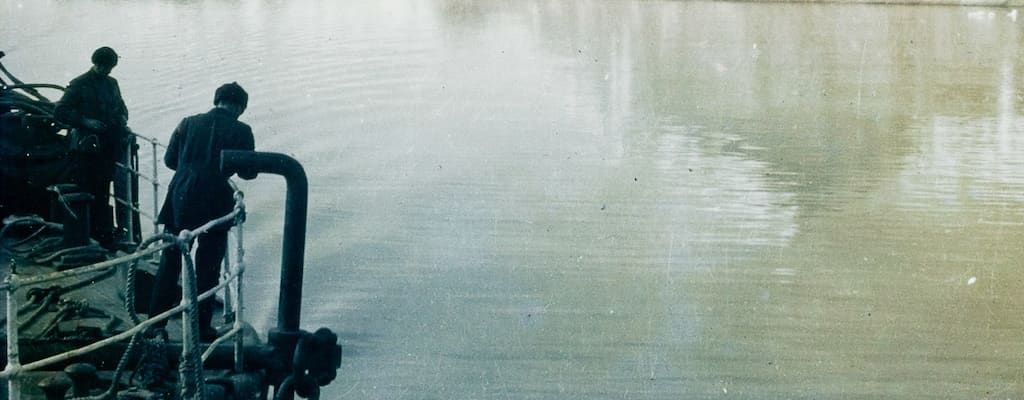fishing expedition: Idiom Meaning and Origin
What does ‘fishing expedition’ mean?
An idiom, "fishing expedition," refers to an investigative or exploratory activity that is undertaken without a clear goal or specific purpose. It is often used to describe a situation where someone is searching for information or evidence without knowing exactly what they are looking for, hoping to discover something useful along the way.

Idiom Explorer
The idiom "kettle of fish" refers to a difficult or messy situation. It implies a situation that is full of complications, problems, or confusion.
The idiom "hunt where the ducks are" means to focus one's efforts and resources where one is most likely to succeed or find opportunities.
The idiom "honey hole" refers to a place or situation that is rich in resources, opportunities, or abundance, often used in the context of fishing or hunting. It suggests a highly favorable and advantageous location or circumstance.
The idiom "gone fishing" is used to indicate that someone is taking a break or not available, often to imply that they are avoiding or neglecting responsibilities.
The idiom "go fish" means to request for someone to provide a requested item of information or to seek out something that is desired or needed. It is often used to indicate that the person being asked does not possess or know the desired item.
The idiom "give chase" means to pursue someone or something in order to catch or capture them.
The idiom "get to the bottom of" means to investigate or find out the underlying or true cause of something, often by thorough examination or questioning.
The idiom "fly blind" means to operate without clear information or guidance. It conveys the idea of taking action without being fully aware of the situation or its potential consequences.
The idiom "fish to fry" means to have more important or pressing matters to attend to than the current one being discussed or dealt with.
The idiom "fish to fry" is used to express that someone has more important or pressing matters to attend to than the current situation or task at hand. It is often used in a dismissive or uninterested manner, indicating a lack of concern or desire to engage in a particular activity.
Plumbing the Depths
The idiom "fishing expedition" has origins in the sport of fishing, where it refers to a search for fish without any specific target in mind. Derived from this literal meaning, the idiom has evolved to have a figurative usage, commonly used in legal contexts. In legal terms, a fishing expedition refers to a speculative investigation or inquiry with no specific aim or evidence, resembling the act of casting a wide net to see what is caught. It suggests a lack of focus or purpose, and can often be seen as an abuse of the legal process.
This idiom is particularly associated with the American legal system, where it is used to describe situations where a lawyer or investigator goes beyond the scope of what is necessary or relevant in their search for evidence. It implies that the individual is going on a fishing expedition in the hope of stumbling upon something incriminating or revealing.
The idiom can also be used in a more general sense, outside of the legal context, to describe situations where someone is engaging in a speculative or exploratory search without a clear goal or purpose. It can convey a sense of aimlessness or lack of direction.
One related idiom is "gone fishing," which is often used to describe someone who is taking a break or vacation. The idea is that they are stepping away from their responsibilities and taking time for themselves, just as someone on a fishing trip would do. In the context of a fishing expedition, the idiom "gone fishing" could be used to describe a lawyer or investigator who is taking a break from their usual caseload and instead engaging in a speculative search for evidence, without any clear goal or direction. It implies that they are not focused on their usual responsibilities and are instead pursuing a potentially fruitless endeavor.
Another related idiom is "bottom fishing," which is used in financial and investment contexts. "Bottom fishing" refers to the practice of buying stocks or other investments at their lowest price, with the hope that they will increase in value over time. In the context of a fishing expedition, the idiom "bottom fishing" could be used to describe a lawyer or investigator who is searching for evidence or information that is not immediately relevant or necessary to their case. They are essentially "bottom fishing" by casting a wide net and hoping to find something valuable, even if it is not directly related to their original objective.
The idiom "go fish" is a playful phrase often used in the game of the same name. The game involves players asking each other for specific cards and drawing from a shared pool of cards to build sets. In the context of a fishing expedition, the idiom "go fish" could be used to describe a lawyer or investigator who is searching for evidence or information by asking a series of broad questions and hoping that the other party will provide something useful. The idiom implies that the individual is not pursuing a specific line of inquiry, but is instead relying on luck or chance to uncover something relevant.
To "fish out" means to remove something from a body of water by fishing. In the context of a fishing expedition, the idiom "fish out" could be used to describe the act of searching for specific evidence or information within a larger collection or pool of data. It suggests a targeted and deliberate approach, as opposed to the more speculative and unfocused nature of a fishing expedition. The idiom implies that the individual is actively seeking to find and extract something specific from a larger body of information.
The final related idiom is "fool's errand," which refers to a task or undertaking that is pointless, futile, or destined to fail. In the context of a fishing expedition, the idiom "fool's errand" could be used to describe a lawyer or investigator who is engaging in a speculative search for evidence or information that is unlikely to yield any meaningful results. The idiom suggests that the individual is wasting their time and effort on a task that is ultimately unproductive or fruitless. It conveys a sense of futility and lack of purpose.
While the idiom "fishing expedition" is commonly used and widely recognized, its exact origins are unclear. It likely developed from the literal sense of fishing without a specific target, and gradually gained a metaphorical meaning in legal and other contexts. The idiom has evolved to convey the idea of a speculative or exploratory search without a clear purpose or aim. This figurative usage, stemming from the sport of fishing, has become particularly common in the American legal system. While its origins are uncertain, the idiom is widely understood and used to describe situations of unfocused inquiry or investigation.
Example usage
Examples of how the idiom *fishing expedition* can be used in a sentence:
- He went on a fishing expedition, interviewing multiple people to gather information for his research.
- The lawyer's questions during the trial seemed like a fishing expedition, as he was trying to elicit information that was not directly relevant to the case.
- She didn't have a specific plan in mind when she started searching online, so she was just going on a fishing expedition.
More "Investigation" idioms

